“See you around the campus.” That was Harry Southerland’s typical good-bye. His daughter, Susan Caron, remembers the simple phrase that contained the full measure of his affection for BU, where he worked as a plumbing supervisor for 40 years. “My father adored Boston University, right up until his death at 83,” Caron says.
Southerland, who died in 2012, was a familiar presence during his four-decade career. After his diagnosis with Alzheimer’s disease, many in the campus community visited him to share stories and memories. He had already lost his 77-year-old wife to Alzheimer’s, and it was their daughter who took care of them both.
Now, in memory of their family’s struggle with the disease—and in recognition of groundbreaking research being done at BU—Caron and her husband, David, have made an immediate-use gift in support of Alzheimer’s research. The Harold and Margaret Southerland Alzheimer’s Research Fund will be split between the School of Medicine and the College of Arts & Sciences biology department.
Caron says a Bostonia article about Alzheimer’s research got them thinking. “We all wanted to honor my father, but we also wanted to do something for BU, since he had so loved it.” The Carons met with Robert A. Stern, a MED professor of neurology, neurosurgery, and anatomy and neurobiology and director of the clinical core at the BU Alzheimer’s Disease Center. He looks at how Alzheimer’s, along with diseases like chronic traumatic encephalopathy, affects the brain, how symptoms of the disease progress, and how new medications could slow or prevent it. For Stern’s clinical trials—critical to his research—the Carons’ gift will allow for much-needed staffing support. “One of the most frustrating things about clinical research in neurodegenerative diseases like Alzheimer’s is how expensive it is,” Stern says. “Our grants simply don’t cover our staffing needs.”
The Carons directed half of their gift to the biology department principally because of what they learned from Angela Ho, a CAS assistant professor of biology, about the formation of amyloid plaques in the brain. Ho, with help from Uwe Beffert, a CAS research assistant professor of biology, and others, will now be able to try new avenues of study into Alzheimer’s.
“We can hire more staff to help generate the data that will seed new grants down the road,” Beffert says. “And that’s huge. For example, an underexplored area is why a protein called apolipoprotein E is a strong risk factor for Alzheimer’s.”
Even before meeting with Stern and Ho, Caron—a retired nurse—understood the difficulties of securing funds for research. “We saw that they had to fight for every dollar,” she says, “and that few of those dollars covered the essential day-to-day expenses.”
There was one other incentive: the Carons’ son Stephen (CAS’16) had already suffered three concussions, the third during a wrestling competition. Two weeks later, his car was rear-ended, resulting in a whiplash injury. “He was down and out for nearly a year,” Caron says. He has recovered and is a senior.

































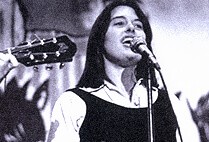
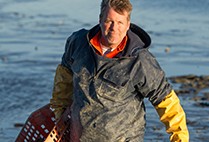
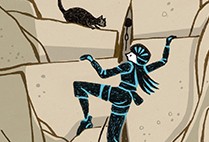
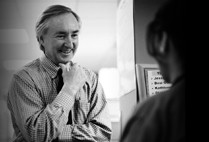
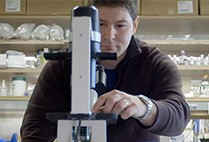
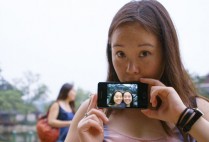






Related Stories
Gift Names the Dahod Family Alumni Center
Renovation of Castle planned for after Commencement
New Test for Alzheimer’s Risk?
MED profs’ study: Slow gait and weak grip help predict brain disease
BU Alzheimer’s Disease Center Wins $5.4 Million NIH Grant
Will fund research on early diagnostics, genetic risk factors, interventions
Post Your Comment